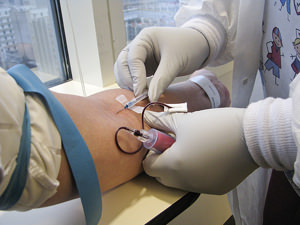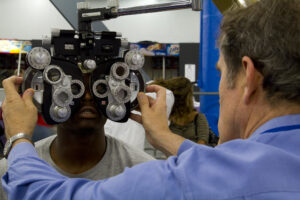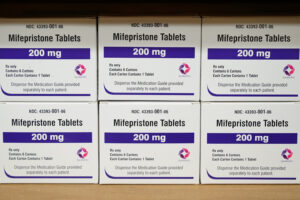Medical Research: Seeking a Better Return
Critics of the National Institutes of Health argue that the $30 billion the government pours into medical research and innovation through the organization each year is not making Americans healthier. (more)
Critics of the National Institutes of Health argue that the $30 billion the government pours into medical research and innovation through the organization each year is not making Americans healthier. While the U.S. spends more of its GDP on medical services than any other country, it ranks miserably low compared with other nations in terms of life expectancy and other health care standards.
We can do better, says Michael M. Crow, president of Arizona State University and former professor of science policy at Columbia University. How? By restructuring the NIH to shift its overriding objective from advances in medical research to the actual improvement of people’s health through investments in collaborative, multidisciplinary programs designed to change behavior. Of course, entrenched critics who deem such efforts to be “too complex and politically impractical,” as Crow writes, must be overcome. –ARK
Your support matters…The Boston Globe:
The United States spends around $30 billion a year on the National Institutes of Health, an agency that has been called the “jewel in the crown of the federal government.” The NIH is by far the nation’s most important single funder of medical research — the scientific work that drives our university labs, our drug companies, and our major hospitals — and its budget amounts to an enormous bet that by advancing basic medical science, we can reap improvements in national health care.
In one arena, at least, that bet is paying off: America has become the unquestioned global leader in biomedical science. As it has, the NIH has also become critically important to states like Massachusetts, which reaped more than $2 billion in funding last year, fueling a high-tech economy of high-paying jobs.
But biomedical science is not the same thing as health, and in a very important sense, our investment in the NIH is not fully paying off. The agency’s own mission statement holds that its ultimate goal is applying knowledge to “enhance health, lengthen life, and reduce the burdens of illness and disability.” And on that count, America is doing less impressively.
Independent journalism is under threat and overshadowed by heavily funded mainstream media.
You can help level the playing field. Become a member.
Your tax-deductible contribution keeps us digging beneath the headlines to give you thought-provoking, investigative reporting and analysis that unearths what's really happening- without compromise.
Give today to support our courageous, independent journalists.






You need to be a supporter to comment.
There are currently no responses to this article.
Be the first to respond.